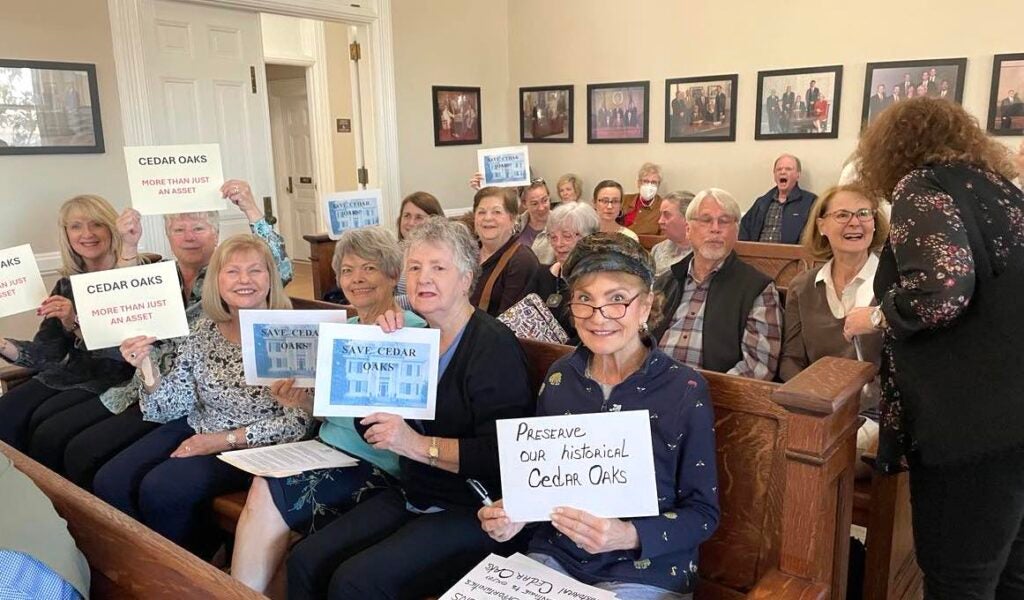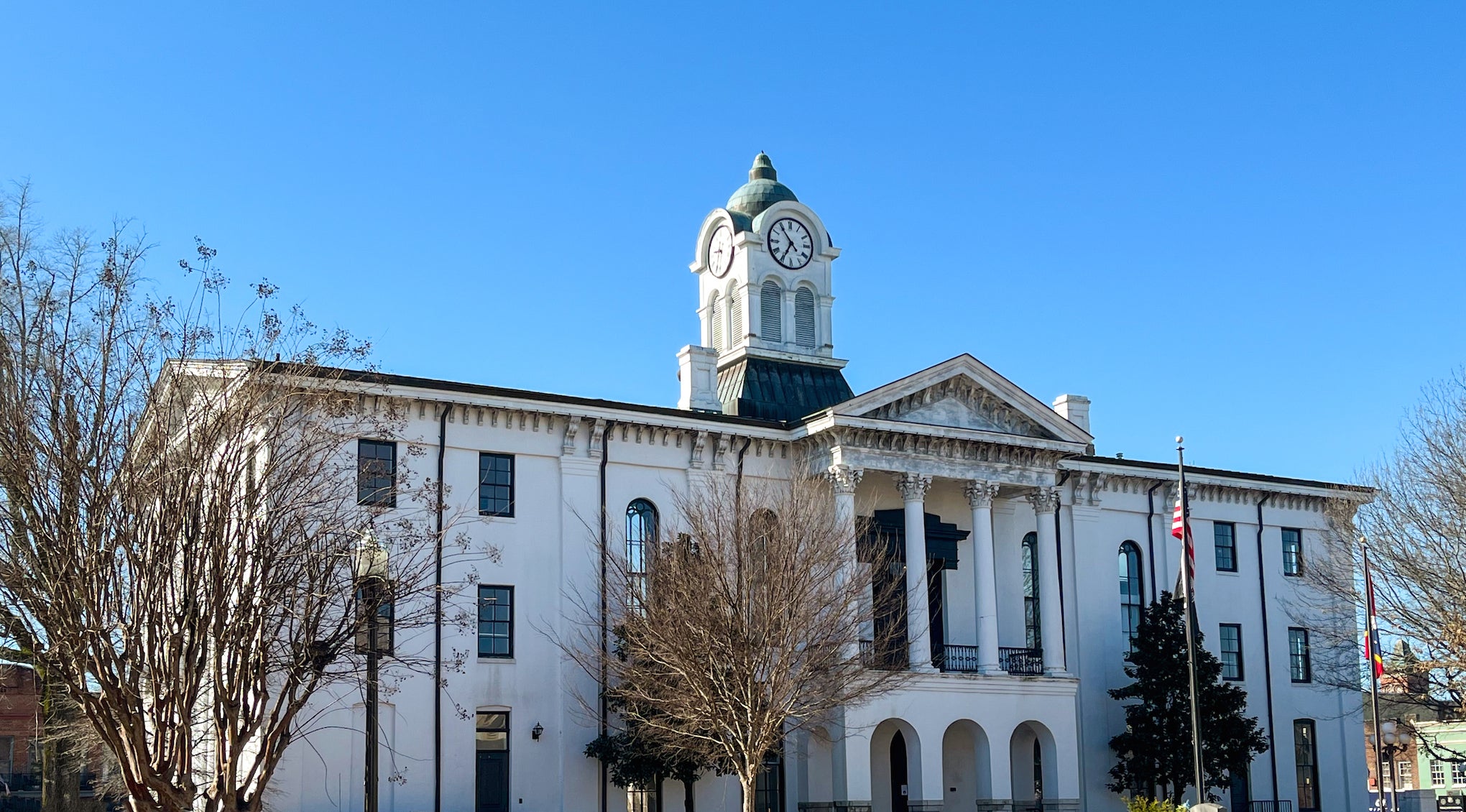Mayor breaks tie vote to approve resolution to explore Cedar Oaks options
Published 11:20 am Wednesday, February 21, 2024

- Members of the Cedar Oaks Guild hold up signs during the Oxford Board of Aldermen meeting Tuesday. Photo by Alyssa Schnugg
Oxford Mayor Robyn Tannehill broke a tie vote from the Board of Aldermen Tuesday to approve a resolution seeking local and private legislation that would allow the sale of Cedar Oaks.
The vote to request the local and private legislation was three for and three against. Voting in favor of the resolution were aldermen Preston Taylor, Keisha Howell Atkinson and Brian Hyneman. Voting “nay” were aldermen Rick Addy, Jason Bailey and Mary Martha Crowe.
Alderman Mark Huelse was not present at the meeting. The mayor broke the tie by approving the resolution which invoked a loud “Boo” from the audience.
“This is not over,” said a man in the audience before walking out of the meeting after the vote.
During the regular meeting, Tannehill said if the city is granted the local and private legislation it does not necessarily mean the city will sell the historic house or the five lots surrounding it.
“The Board of Aldermen have not declared the Cedar Oaks building surplus, nor have they authorized the sale,” she said. “As the resolution explains, there is not a pending or definitive date for selling the property.”
Tannehill said if at any time the board decided to sell the building or the five lots surrounding it, they are all protected because they are listed as a Mississippi historic landmark.
“Any alterations to the building or lots would have to be approved by the Mississippi Department of Archives and History,” she said.
Tannehill said requesting the local and private legislation is merely a first step to allow the board to explore possibilities for Cedar Oaks’ future.
“This exploration may result in no changes at all,” she said. “The board may further explore the opportunities for selling some of the adjacent lots for development under Mississippi Historic Landmark guidelines and using that money to implement needed improvements and annual costs. The board may further explore donating the property to the grantor or someone who would hold the property in public trust. The board may consider selling the home to someone who may preserve and live in the home.”
When the agenda for Tuesday’s meeting was made public, members of the Cedar Oaks Guild – a group of women whose primary mission is to preserve, support and the promotion of Cedar Oaks – rallied on social media and email chains against the resolution from their membership and other community members. City Hall was standing room only Tuesday with about 50 people showing up against the resolution. Many held small paper signs that read “Save Cedar Oaks” and “Cedar Oaks – more than just an asset.”
Tannehill apologized to the audience and the guild members for not reaching out to them before the item was put onto the agenda.
“Last Thursday we realized that March 5 is the deadline for local and private bills. We realized we needed to be on this agenda. I approved that and left town that day,” Tannehill said. “I apologize. I didn’t communicate it well and for that, I am very sorry.”
The agenda item was not up for a public hearing; however, Tannehill allowed Cedar Oaks Guild President Keri Dibrell to speak before the board on behalf of the guild.
Dibrell said while Cedar Oaks has a rich history in Oxford, some city officials may be unaware that of how the house is being used today.
“Our house has hosted parties,” Dibrell said. “It has been used for people to get engaged. People have had their weddings here. We’ve had prom pictures taken on our front steps … and on our staircase. Office parties have happened there.”
The guild meets at the house every month during the academic year. Several community events have been held there, including a May festival and Cookiepalooza – a popular Christmas event.
“Cedar Oaks is a rare, historical site in the middle of Oxford,” Dibrell said. “It is a place of community, history and education. The transfer of ownership was made in good faith that the house and property would be used and maintained in a collaborative way as an educational tool between the city and the guild.”
Built in 1859 by master builder and self-trained architect William Turner as his residence, the home was moved from North Lamar Boulevard to its present location in east Oxford off Sisk Avenue in the late summer of 1963.
It was owned and managed by Oxford Lafayette Historic Homes, the umbrella organization for three women’s clubs — Centennial Study Club, Cosmopolitan Study Club and the Readers Guild (now all rolled into the Cedar Oaks Guild) for more than 50 years.
In 2010, the house was deeded to the city of Oxford and is now managed by the Historic Sites Commission of Oxford.





